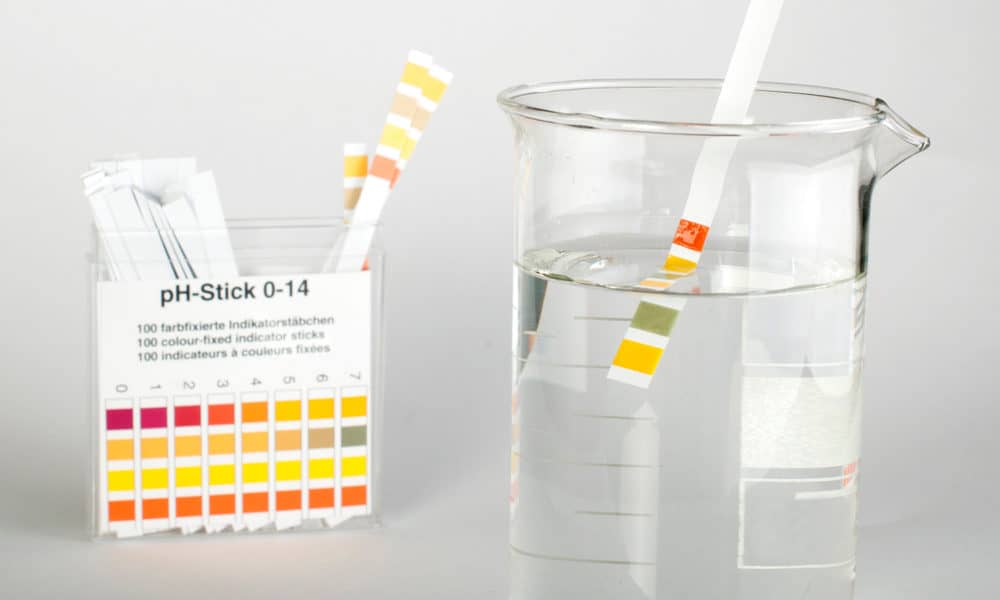If you are not sure what water hardness is, you are not alone. However, you may have experienced the effects of it without even knowing what it was.
Hard water refers to water that contains a high percentage of minerals such as magnesium and calcium. This is not dangerous for human consumption but is not great for our appliances and home fixtures.
Hard water can leave behind a residue on appliances and machinery that over time can wear them down and cause them to break.
If your home has hard water, you may want to consider purchasing a water softener to combat this issue. First, though, you will need to determine the hardness of your water. Read on to find out about how to calculate water hardness.
What Is Water Hardness?
The hardness of water depends on how much dissolved minerals are in the water. Hard water will contain high percentages of both magnesium and calcium, usually.
When you shower or bathe in this water, it can leave your skin feeling less than clean. Some people react with dry, red skin. Others may notice that you feel a bit slimy, especially after using soap.
That is because calcium in the water reacts with soap and makes it hard to break down and wash off.
Another common symptom of hard water in your home is seeing spots on your cutlery and glasses. Even though you have just taken them out of the dishwasher, you will see these on many of the items. This is due to hard water as well. They are safe to eat and drink from but do not look appealing.
When hard water is heated, it can create a very thick layer of limescale, also known as calcium carbonate. This is what can really cause harm to appliances and machinery. It could also make your water heater more inefficient.
To restore your glasses to their original shine, you could wash them occasionally with vinegar. The acid in vinegar can get rid of the limescale. Then, you can wash it right off.
Hard water is not all bad, however. It does have many minerals which are good for us. It is unfortunate that it can wreak such havoc on our homes.
Temporary Hardness vs Permanent Hardness of Water
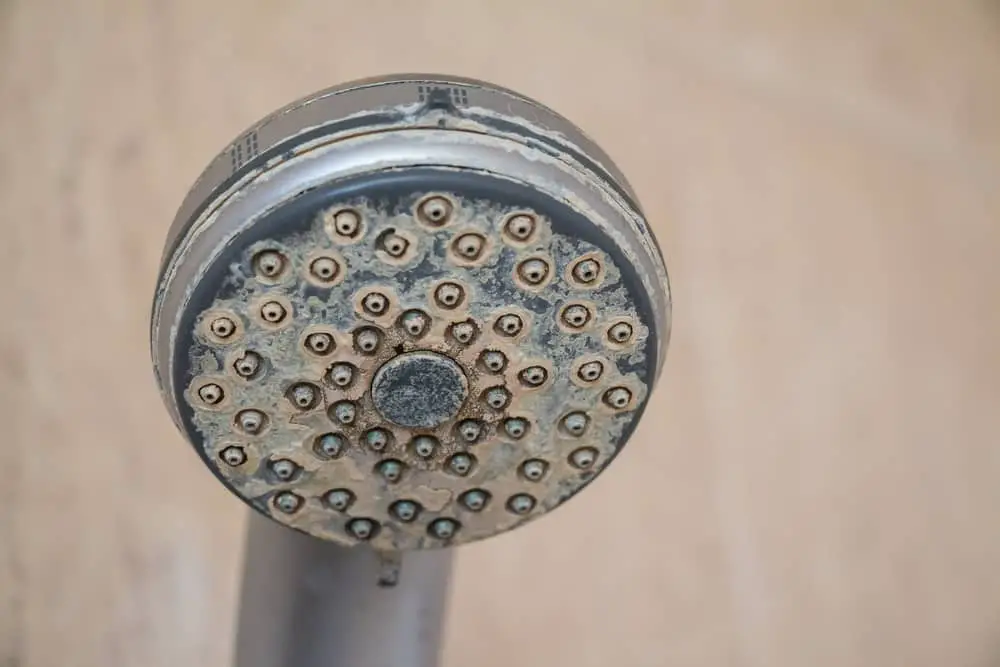
You may have heard the terms ‘temporary hardness’ and ‘permanent hardness’ when it comes to water. What exactly do these mean?
Temporary hardness is what happens when sodium bicarbonates and calcium have dissolved into the water. You can soften this type with lime softener such as calcium hydroxide.
Permanently hard water requires more in-depth treatment to soften it. It contains stubborn compounds that will require a water softener such as an ion exchange system.
Permanent hardness is thought to be the total of magnesium hardness + calcium hardness in your water. To calculate this hardness level, you can buy kits that test your water.
Hard Water Calculations
As mentioned above, there are two ways in which water can be hard. One is permanent and the other is temporary. Permanent hardness of water can be calculated with a hard water calculator.
It is done by using this formula:
Calcium Hardness + Magnesium Hardness = Total Permanent Hardness
Several linking compounds make up the molar mass.
- Mg2+= 24,3g/mol
- Ca2+ = 40, 1g/mol
- CaC03 = 100,1 g/mol
Here are the ratios for molar mass:
- MCaCo3/Mmg = 100,1/24,3 =4,1
- MCaCo3/MCa = 100,1/40,1=2,5
In the below formula, total water hardness is shown as CaC03. The formula shows how you determine the total water hardness.
- (CaC03) = 2,5 . (Ca2+) + 4,1 (Mg2+)
Therefore, to calculate the hardness of your water, you can use the above formulas to do this.
How to Measure Hardness in Water
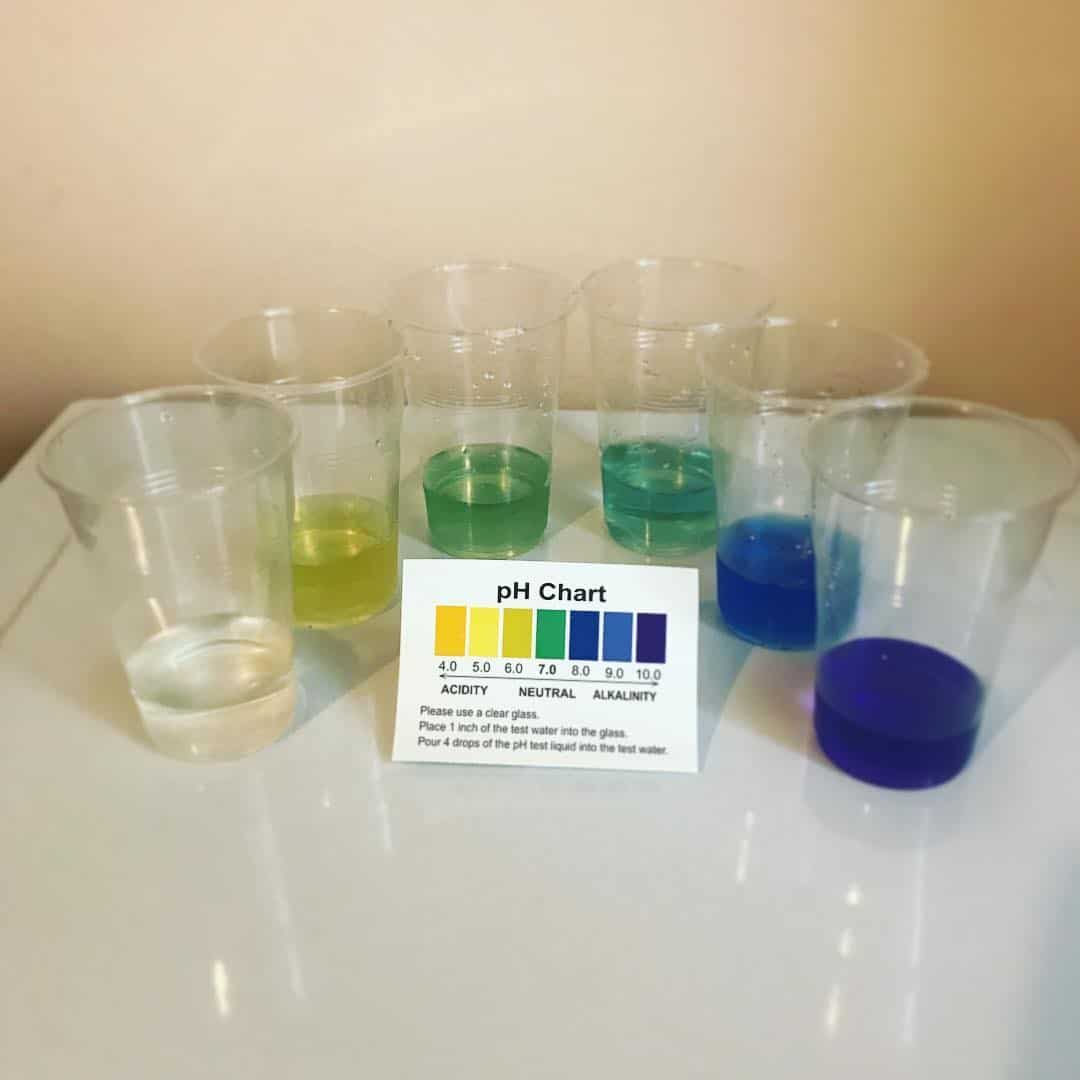
Hardness in water can be measured in many ways. It depends on if you prefer using hardness by the liter, million, or gallon. So, water hardness is conveyed as mg of calcium per liter, parts per million, or grains per gallon.
So that you can find out the hardness of your home water supply, you will need to take a sample to a water testing lab. They will give you the results of individual compounds in the water. Use this information in the above formulas to figure out the total hardness of your water.
Water Quality Report
When testing how hard your water is, you need to know exactly what you’re looking for. If you manage to get your hands on a water quality report for the water streaming into your home, this guide can help you decode it.
These reports are often full of numbers and can be extremely hard to read if you do not know what you are looking for.
They also often test the water at the place they treat it and then it can pick up extra contaminants on the way to your house. So, be careful of completely trusting the accuracy of these. However, they are a good way of giving you an indication of water hardness.
You will usually see this written as mg/L of calcium carbonate. Here is what you are looking for to determine if your water is hard:
- 0-60 mg/L = Soft Water
- 61-120 mg/L = Moderately Hard Water
- 121-180 mg/L = Hard Water
- More than 180 mg/L = Very Hard Water
Ways to Measure Hardness in Water
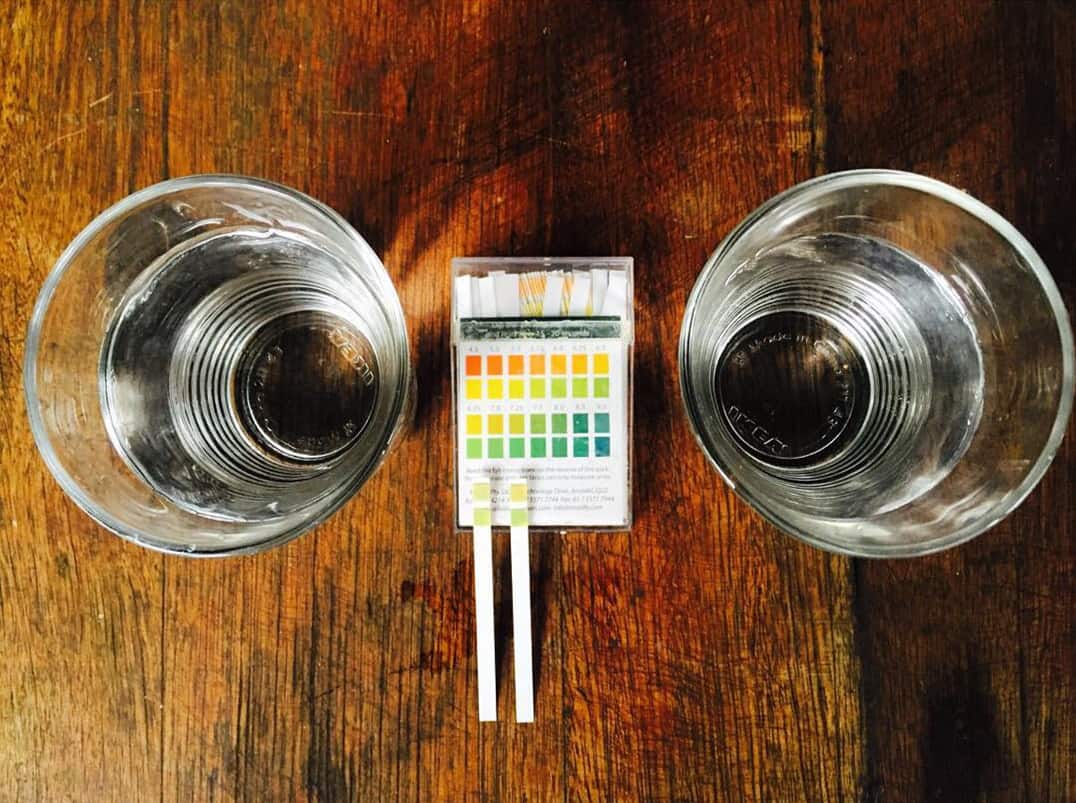
Test Strips
You can purchase a test strip to determine the hardness of your tap water yourself at home.
If you filter the water you use in your house, you will first need to locate a source of unfiltered water to test. It is not suitable to use an outside tap that attaches to the hose you use in your yard. That is because these often collect dirt and debris which can affect your test results.
- Remove from packaging and do not touch the test strip. Touching it can affect the results so make sure you only touch the strip right on the edges of it.
- Fill a glass with the water you are going to test. Insert the test strip into it and let it stand in there for 2 seconds or more. There will be instructions on the packaging, so refer to those for an exact time.
- Take the strip out and shake it to get rid of excess water. Keep shaking it until there are no drops of water on it. You want a wet but not dripping strip.
- Compare the current color of the strip with the chart that you can find on its packaging. This will give you an indication of the water hardness. The colors vary greatly across different brands of test strips, so just check the packaging for instructions on what to look for.
- Untreated water can come back with values up to 425. You should be looking for your treated water to contain a value of 0. This is soft water.
Instruments
A colorimeter can be used to test water hardness. During this process, a white light is shone through an optical filter. The screen will send a colored light through the photodetector.
You need to determine the difference between amounts of colored light in a clear vs colored sample. Then you will know how much of the colored light your sample has absorbed.
The amount of colored light absorbed is related to the mineral concentration in the water. The test uses a meter to measure this.
Soap
You will need:
- Measuring Cup
- Dish Soap
- Small Bottle with lid
Pour water into the bottle and put a mark on the water line. Add a little bit of soap to it and shake it. There should be some bubbles now.
If it is not creating suds, then there is a lot of dissolved salt in there. If you do not need to use a lot of soap, then this shows that the water does not contain many minerals.
This is by no means a precise test. But it is a good at-home test to see if it is worth getting your water tested at a testing facility.
Summary
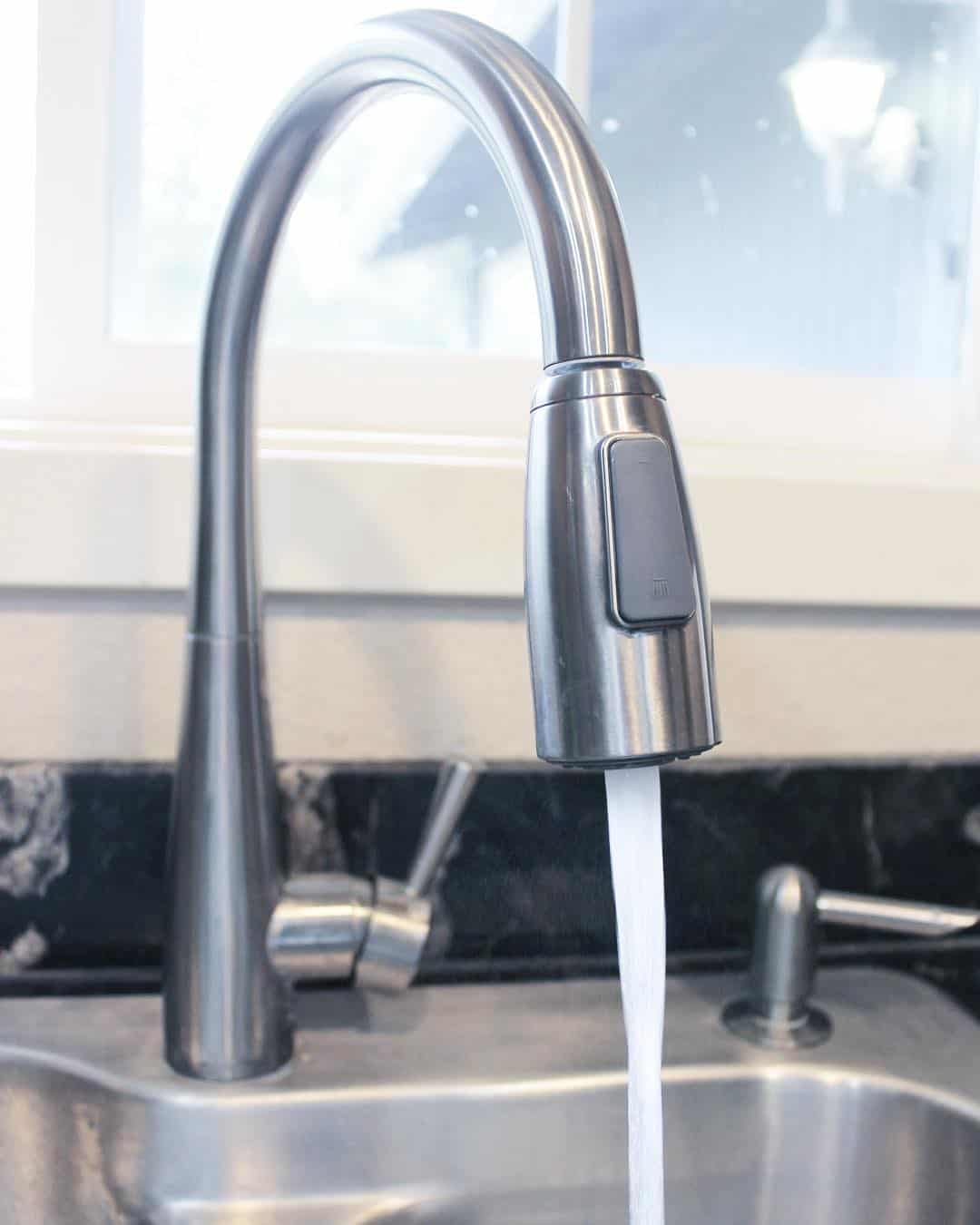
Knowing whether or not the water in your home is hard can be helpful. If it is temporary hard water, this can be treated easily. Permanently hard water is, unfortunately, not so easy to deal with.
If it is permanently hard water coming into your home, then you can purchase a water softener which will help with this. This will assist you in avoiding hard limescale from building up on your fixtures and appliances, making them last longer.
Try using one of the above tests to see if the water in your home might be hard. The sooner you know, the better, so that you can fix it. Fixing it quickly can avoid damage to your home.
Minerals such as magnesium and calcium in your water are not the end of the world. If you effectively manage your water supply, they are no problem at all. And you can benefit by using a water filter because your water will taste fresher and cleaner too.
